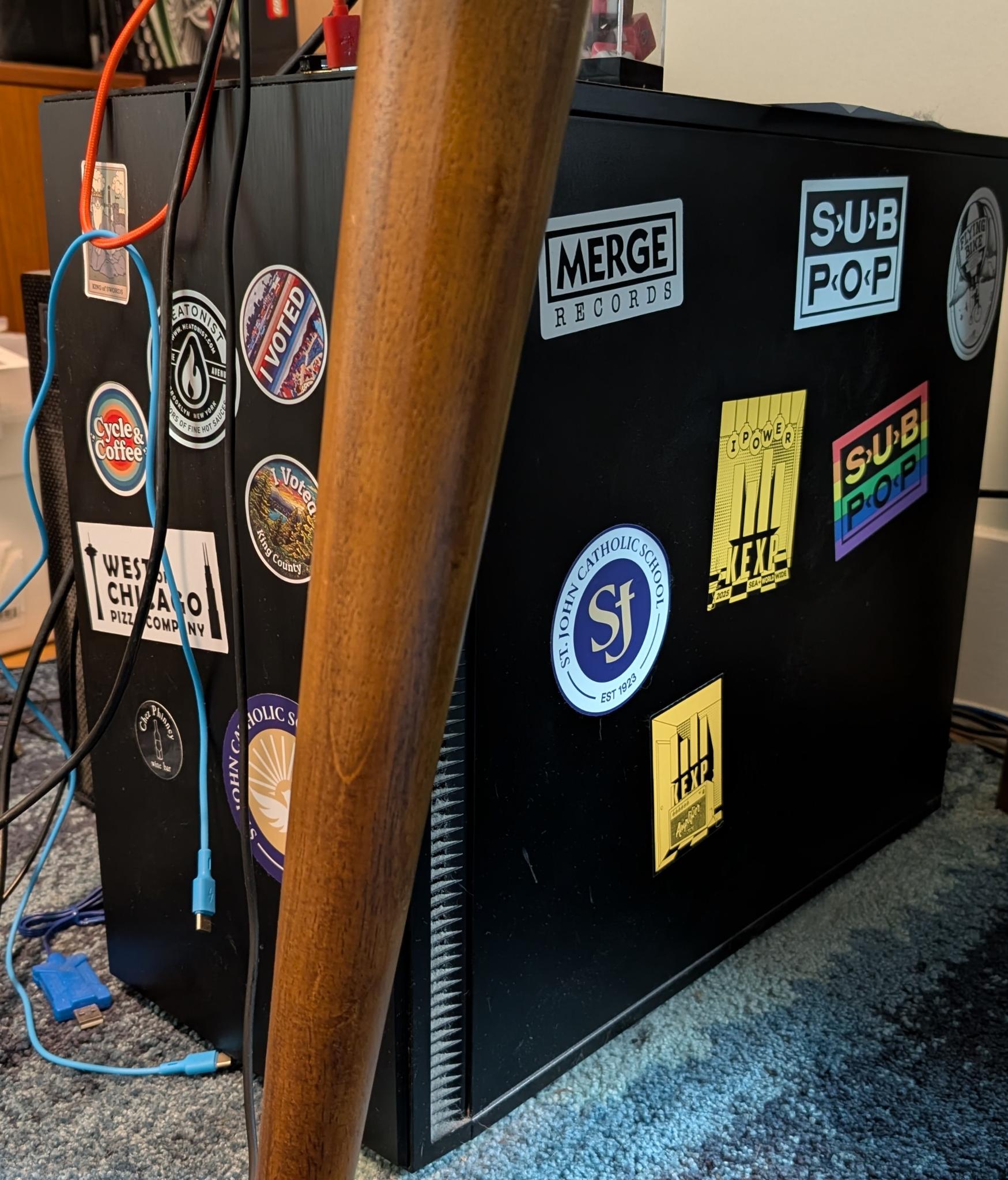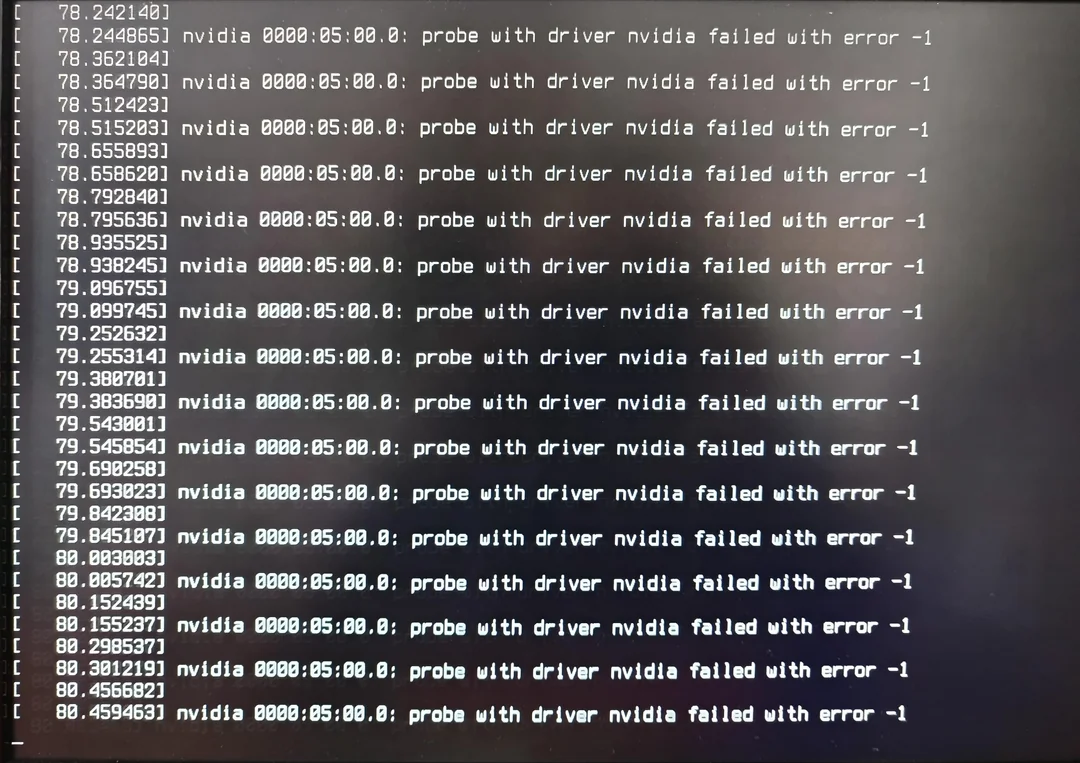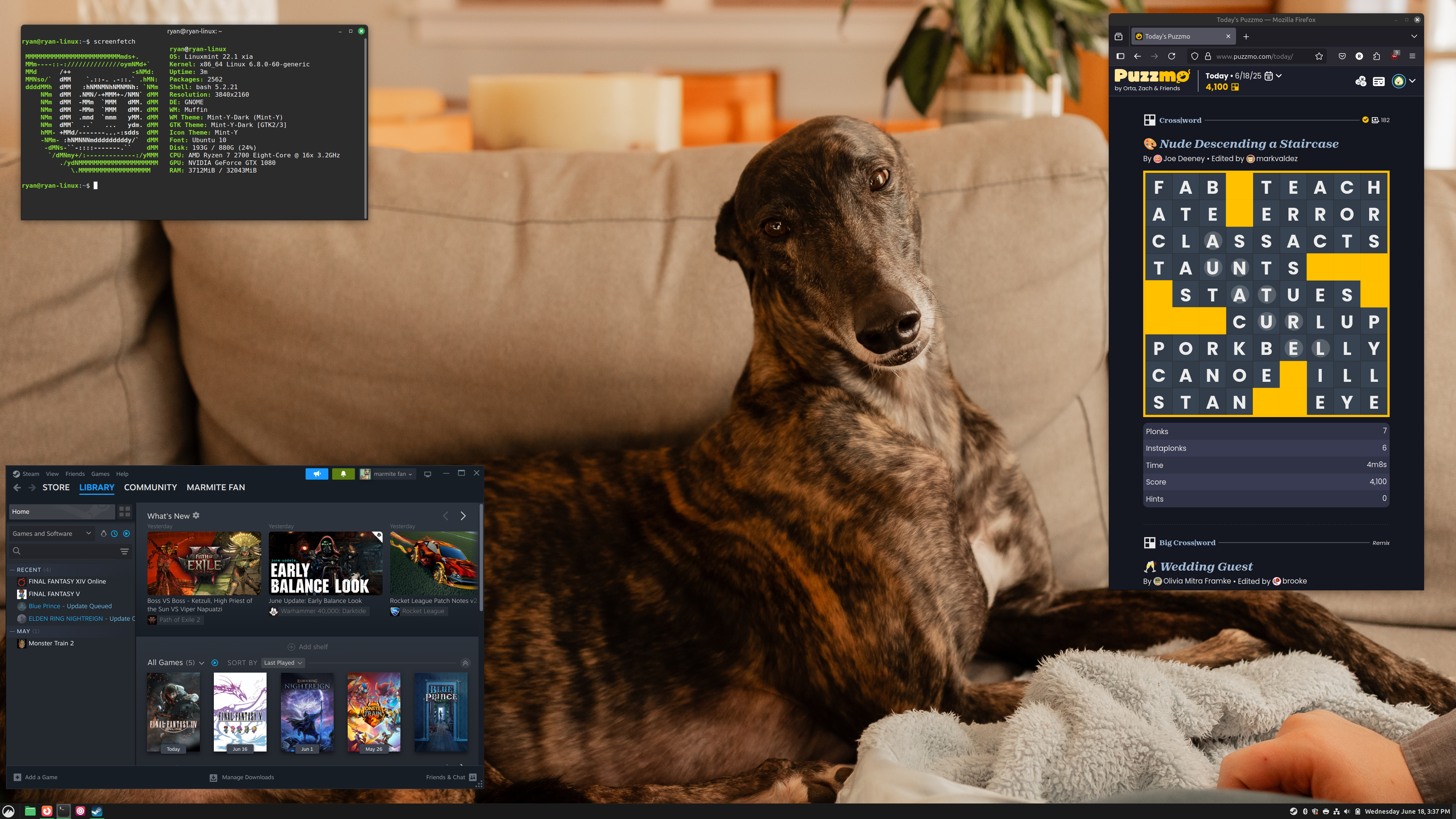Swapping My Gaming PC to Linux
Posted: 6/18/2025
I have a fairly old gaming PC. I've built one as an adult, in 2018, and never touched or modified it again. Why bother? It plays the games that I play and provides the other basic functionality I need. Recently, however, it gained a significant flaw: Windows 10.
The Problem With Windows
Windows has never been an operating system that I've had a great affinity for. Growing up, we only owned Macs for whatever reason, and things that I wanted to do were rarely supported until the OS X days. When I finally convinced my parents to let me get my own computer, I immediately put Windows XP on it. That was probably the peak of the experience for me - it ran everything but really let you mess around with the system. Ever since, I feel like the OS has been gotten more overloaded, with Windows 10 hitting the coveted "acceptable" level. It mostly works, but has so many weird annoyances around the edges that I never really cared to do much with it, opting for a spare Mac and Linux box that I have around for anything complicated.

Too many stickers to be e-waste
Then came the announcement that Windows 10 would be end of life this year. This is a problem for me. My computer doesn't have a TPM chip, and I don't really want to open it up to replace the motherboard. After several months of thinking on it, I decided to give a Linux distribution a shot and see what happened. I had used Ubuntu quite a bit in college, and figured that the experience has likely improved since then.
Attempt 1: Fedora KDE
Fedora KDE is a well regarded, recommended distribution with a fairly nice user experience and dual boot support, so I figured I'd start with this one. This was the genesis of a few different issues that would arise.
Nvidia Drivers
I did not realize what a pain in the ass it was going to be to get my old 1080 working on Linux. Getting Fedora onto the system was easy enough once I figured out safe graphics mode, but the Nvidia drivers were wildly unstable. At best, I was getting random full system freezes when gaming, and at worst I lost an entire day trying to get the display to turn on again since something odd had happened with the drivers during a system update.
GRUB
GNU GRUB is the bootloader that Fedora installs. Ultimately, it did not detect Windows, and left my computer with a partition that I could mount but not boot from. This let me snag files off the disc to backup, and hypothetically I could have gotten this bootable later on (but I didn't, more on that later). GRUB, I found, was also kind of a pain to work with, especially when the drivers crapped out.
Distro Experience Differences
It turns out, even without the driver and GRUB issues, I probably just wouldn't have stuck with Fedora. Apps aren't as well supported, I found installing things via console to be a bit more finicky, and it generally just didn't feel as flexible as I wanted it to be.

Fedora KDE looks great, even if it didn't work for me
The Good
When everything is working, that thing can really run Steam. XIV was the main thing that I set up, and it ran so much smoother than it did on Windows. The system started up significantly faster than Windows 10 did, and didn't lock the disc any time anything was installed.
Pop!_OS
Ultimately, the Nvidia issues were just too great to power through. That computer has one thing that it must do - run Steam games- and it wasn't doing it. Looking online, a lot of people suggested Pop!_OS as an alternative. This is a distro that I'm familiar with since I use it on a small build machine I have, and there's a version that comes pre-installed with Nvidia. I wrote it to a USB and gave it a shot.
Unfortunately, this turned out to be a total bust:
- Pop! really wanted me to format the disc. I probably could have avoided this, and I tried to repartition the disc, but it wasn't having it. I had made backups of everything important, so I decided to just go for it. This led to the next problem:
- The Nvidia drivers just straight up didn't work at all. I never even got to a login screen post-install; the machine wouldn't detect my card, and would just get stuck in a boot loop.

My Pop! OS experience
With an empty hard drive and non-working PC, I moved back to something I knew would be more reliable.
Linux Mint
While not the exact Ubuntu desktop distribution, Linux Mint was close enough for me to give it a shot, and it seemed a bit more streamlined. Popped it on a USB, booted it up to a completely clean drive and - it just worked.
No weird display issues. You can download and run installers. Games just work. Only minor issue was that the default audio drivers didn't work great, so I had to revert to pulseaudio.
On top of that, everything's been snappier - my machine starts up quickly again, and updates never take 20+ minutes to complete, or install useless applications on my machine. Search finds applications instead of sending me to a Bing search. And I can continue fishing in Final Fantasy XIV.


Mint - working as intended
Is it worth switching?
If you've got a computer that can't make the jump to Windows 10, and you're relatively tech savvy, why not? Linux still feels like a tough general recommendation though - the pulseaudio fix alone sounded like a nightmare to explain to my parents or someone else that needed support.
When I build a new machine, I'm also not sure if I won't just install Windows again. Unfortunately, it's nice when new hardware Just Works, but it seems like that future is still a ways off for Linux. Microsoft also recognizes its position for gaming, and is doubling down on investing. I also have kids that'll be using a computer at some point in the near future, and I don't know if I'm quite as ready to give them a machine that's so easy to mess with.
That being said, I'm still happy I made the jump.
